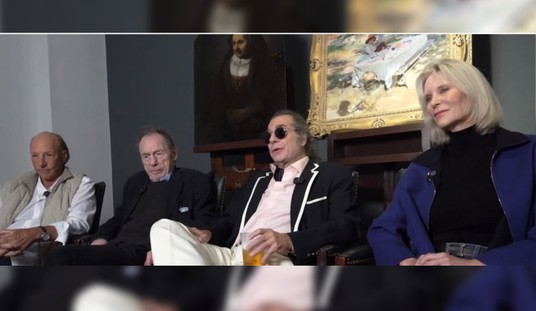For hacks of a certain vintage, the name “Rod McKuen” served as a effortless go-to punchline ingredient, the way “Sarah Palin” or “Justin Bieber” does today.
Zillion-selling author and lyricist McKuen was the Thomas Kinkade of poetry.
His death last week left me decidedly unmoved, except that I was quite distressed to learn this, from Mark Steyn:
And yet it is a melancholy fact that Frank Sinatra, a singer with matchless taste in music, nevertheless recorded more songs by Rod McKuen than he did songs by, to pluck at random, Duke Ellington, Dorothy Fields, Noel Coward, Bacharach & David, Leonard Bernstein, Vincent Youmans, Cy Coleman, George Gershwin… He recorded as many songs of Rod McKuen as he did of Jerome Kern – 13 apiece. And he never made an entire album devoted to Kern (or to Porter or Berlin or Rodgers) as he did to McKuen.
Heartache.
That was the only obit I read, so my next weird discovery was purely accidental…
I continue to pickax my way through a massive, eclectic “mix tape” sent to me by a longtime reader, and recently alighted upon tunes from a compilation called Las Vegas Grind Vol. 3. (Think of the slightly raunchy, faux jazz music you hear in 1950s and 1960s B-movies.)
One song caught my ear. Wait a minute: That’s…
It was listed as “(I Belong to) the Beat Generation” (1959) by Bob & Dor.
But I knew that melody — played on this record, stubborn rumor has it, by no less than Bill Haley and the Comets — from another source:
“That’s Richard Hell’s 1977 hugely seminal ur-punk song (“I Belong to) the Blank Generation,” I thought. What the…?
Now, I’ve always been far more enamored of British punk than its American — more specifically, New York City/CBGB’s — iteration.
So that’s why I’m the last to know:
Not only did Hell lift his punk anthem directly from McKuen — the “Bob” of the ’59 duo — but he didn’t even share the writing credits (and therefore royalties, puny as they probably were) with the old guy.
Naturally, Hell dumped McKuen’s satirical lyrics — Beatniks being so easy to spoof by “squares” that there were probably more ersatz ones about in the fifties than living specimens — and substituted his own:
They’re a cry from a typically tortured, self-pitying but precociously gifted adolescent, if Pete Townshend’s “Jimmy” had read Baudelaire.
What always struck me about those lyrics was the first line’s “As I was saying…” flavor, as if the spirit of punk had been in the womb or in a coma and had finally reawakened or been born, unaware of how long it had been in stasis.
This sensation is more acute now that I’m aware of the song’s lineage.
Anyway, maybe McKuen found the whole thing too flattering or funny to sue over. And yeah, he was rich anyhow.
So what? you ask. Well, this:
[Malcolm McLaren] had already spotted Richard Hell, a New York poet and musician, who had been in the groups Neon Boys and Television and would go on to write the punk anthem “Blank Generation”. “I just thought Hell was incredible,” he recalled. “Here was a guy all deconstructed, torn down, looking like he’d just crawled out of a drain hole, covered in slime, looking like he hadn’t slept or washed in years, and looking like he didn’t really give a **** about you! He was this wonderful, bored, drained, scarred, dirty guy with a torn and ripped T-shirt. I don’t think there was a safety pin there. This look, this image of this guy, this spiky hair, everything about it. There was no question I’d take it back to London. I was going to imitate it and transform it into something more English.”
And so he did.









Join the conversation as a VIP Member